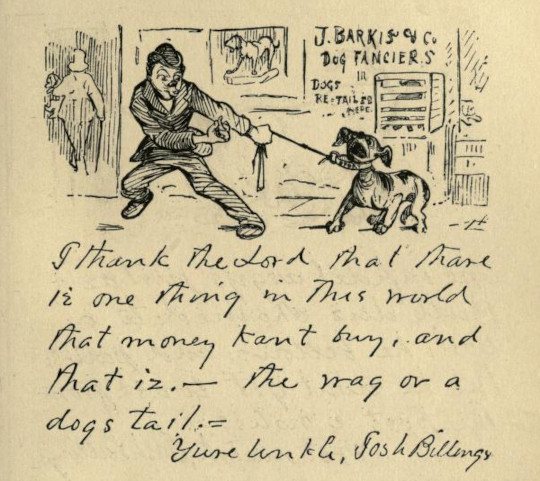Josh Billings? Henry Wheeler Shaw? Apocryphal?

Question for Quote Investigator: A dog wagging its tail energetically produces joy in my heart. The dog is usually expressing genuine enthusiasm. A well-known writer once said that money could not buy a wagging tail. Would you please help me to identify the writer and find a citation?
Reply from Quote Investigator: In the 1870s popular humorist Josh Billings (pseudonym of Henry Wheeler Shaw) published an annual series called “Farmer’s Allminax” which parodied the long-lived periodical “Farmers’ Almanac”. In 1879 Billings published a collection under the tile “Old Probability: Perhaps Rain—Perhaps Not”. He included an illustration (shown above) of an unhappy and uncooperative dog resisting the tug of a leash in front of a store called “J. Barkis & Co.” for dog fanciers. The script caption employed intentional misspellings. Here is a transcription followed by a version using standard spelling. Boldface added to excerpts by QI:1
I thank the Lord that thare iz one thing in this world that money kant buy, and that iz,— the wag ov a dogs tail.
Yure Unkle, Josh BillingsI thank the Lord that there is one thing in this world that money can’t buy, and that is,— the wag of a dog’s tail.
Your Uncle, Josh Billings
Below are additional selected citations in chronological order.
Continue reading “Quote Origin: There Is One Thing In This World That Money Can’t Buy, The Wag Of a Dog’s Tail”




